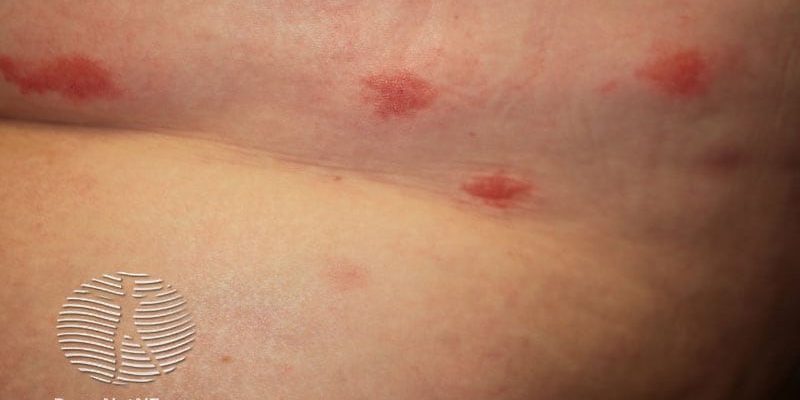TOPLINE:
Eosinophilic cellulitis (EC) is a type 2 inflammatory disease that activates the JAK1/JAK2-STAT5 pathways, an analysis of skin biopsy specimens suggests.
METHODOLOGY:
-
To better understand the pathogenesis of EC, also called Wells syndrome, French researchers analyzed archival skin biopsy samples from 14 patients with EC and eight healthy controls.
-
Assessment of samples in the case series was conducted between 2020 and 2022 and included histology, Janus kinase (JAK)–signal transducer and activator of transcription (STAT) immunohistochemistry, and gene profiling.
-
The mean age of the patients and healthy controls was 50 years.
TAKEAWAYS:
-
The researchers observed pronounced type 2 inflammation in the EC lesions, characterized by several markers, including chemokines CCL17, CCL18, and CCL26 and interleukin 13.
-
They also observed preferential activation of the JAK1/JAK2–STAT5 pathways in the lesions.
-
In one index patient with EC that was refractory to treatment with methotrexate, oral prednisone, and other therapies, complete clinical remission of skin lesions was observed after 1 month of treatment with the JAK inhibitor baricitinib. (No other patients were treated.)
IN PRACTICE:
-
While the results need to be replicated, the researchers conclude that the findings are “promising” and “advocate for the development of JAK1/JAK2 targeting treatment approaches in EC and other eosinophilic diseases.”
STUDY DETAILS:
-
Axel P. Villani, MD, PhD, of the University of Lyon, France, led the research. The study was published online June 21, 2023, in JAMA Dermatology.
LIMITATIONS:
-
Response to baricitinib therapy was observed in only one patient with EC; replication in other patients is required.
DISCLOSURES:
-
Villani reported receiving consulting fees from AbbVie, Almirall, Amgen, Bristol-Myers Squibb, Eli Lilly, Janssen, LEO Pharma, MSD, Novartis, and UCB outside the submitted work. Many of the co-authors reported having received funding and other support from several pharmaceutical companies. No information on funding for the study was provided.
For more news, follow Medscape on Facebook, Twitter, Instagram, and YouTube.
Source: Read Full Article
